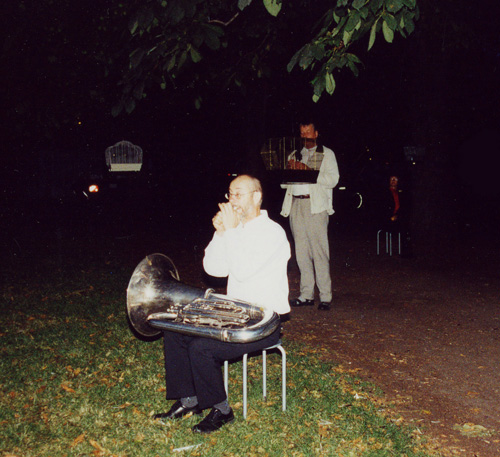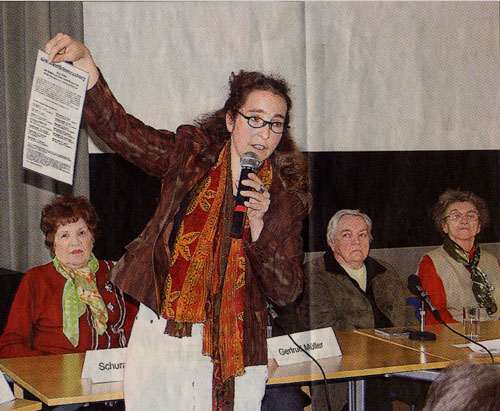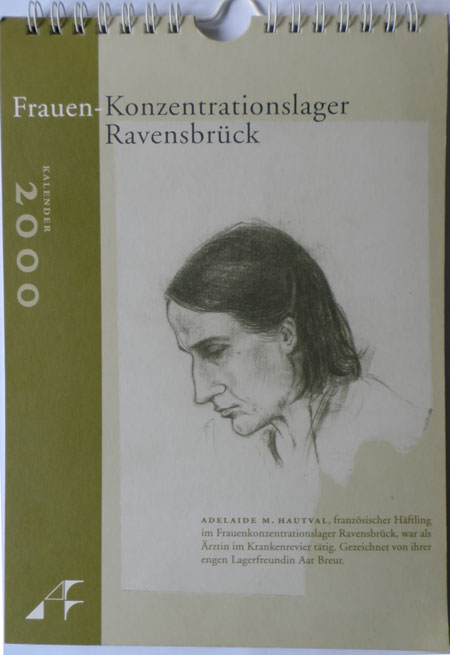| EBBA ROHWEDER es de VIDEO COMPOSITION |
| Ravensbrück 1997-2005
|
|
RAVENSBRÜCK - SURVIVORS TELL Due to the advanced age of the survivors of the Ravensbrück women's concentration camp, we decided at the end of the 1990s to produce an audio-guide about the Ravensbrück memorial. I interviewed 13 survivors of eight different nationalities, leaving their testimony for the next generations so that history does not repeat (cf. Elisabeth Kunesch, survivor). In 2003, in a very moving ceremony in the presence of many survivors of the Ravensbrück women's concentration camp, we handed over the audio guide to the Ravensbrück Memorial together with the publication of the CD sie blieb dort für immer und ewig - 13 Überlebende berichten (She stayed there forever - 13 survivors tell their stories). It was the first audio guide to a concentration camp based solely on the voices of survivors. In 2004, this expanded audio guide was published on the website of the Bundeszentrale für Politische Bildung (Centre for Political Education) with additional interviews, biographies, visual materials and information texts.
|
 Premiere of flying without wings, Berlin 2002 |
flying without wings, 2002 During the years that I realised projects with and for the survivors of the Ravensbrück women's concentration camp, I enjoyed the personal contact with many of them. Apart from their inhuman experiences as concentration camp prisoners in their youth, we shared many moments in which they shared with me their immense joy and strength of life, their wisdom and warmth. With some of them the contact turned into friendship. In 2002, when I was commissioned by the Berlin Senate for Science, Research and Culture to compose a composition, I also wanted to bear witness to this part of life in subhuman conditions. flying without wings is a scenic composition and installation in a park at dawn. In the installation, the voices of survivors of the Ravensbrück women's concentration camp can be heard talking about their personal experiences during their imprisonment, about resistance actions, about the mutual solidarity between the prisoners, and also about singing. For an hour from the darkness of night to the dim light of dawn, the park became a magical space, giving rise to the memory of the past - disappeared yet present. |
Premiere: |
Flowery Landscape - Forced Labour under the NS-Regime In 1995, the demand of forced labourers for compensation for the exploitation of their labour power during their captivity gained momentum. In more than 90% of German companies, in agriculture and even in church institutions, their labour was exploited. Siemens built a factory directly next to the Ravensbrück women's concentration camp, forcing the prisoners to produce weapons for the war under inhumane conditions. After two years of research in different archives and interviews with survivors, in 1997, the stage composition FLOWERY LANDSCAPE - Forced Labour under National Socialism was premiered. Various groups and associations specialised in this topic joined the performance, informing the public and giving strength to the demand for compensation: after years of struggle, a state fund for a - albeit minimal - compensation was finally created in 1998. |


